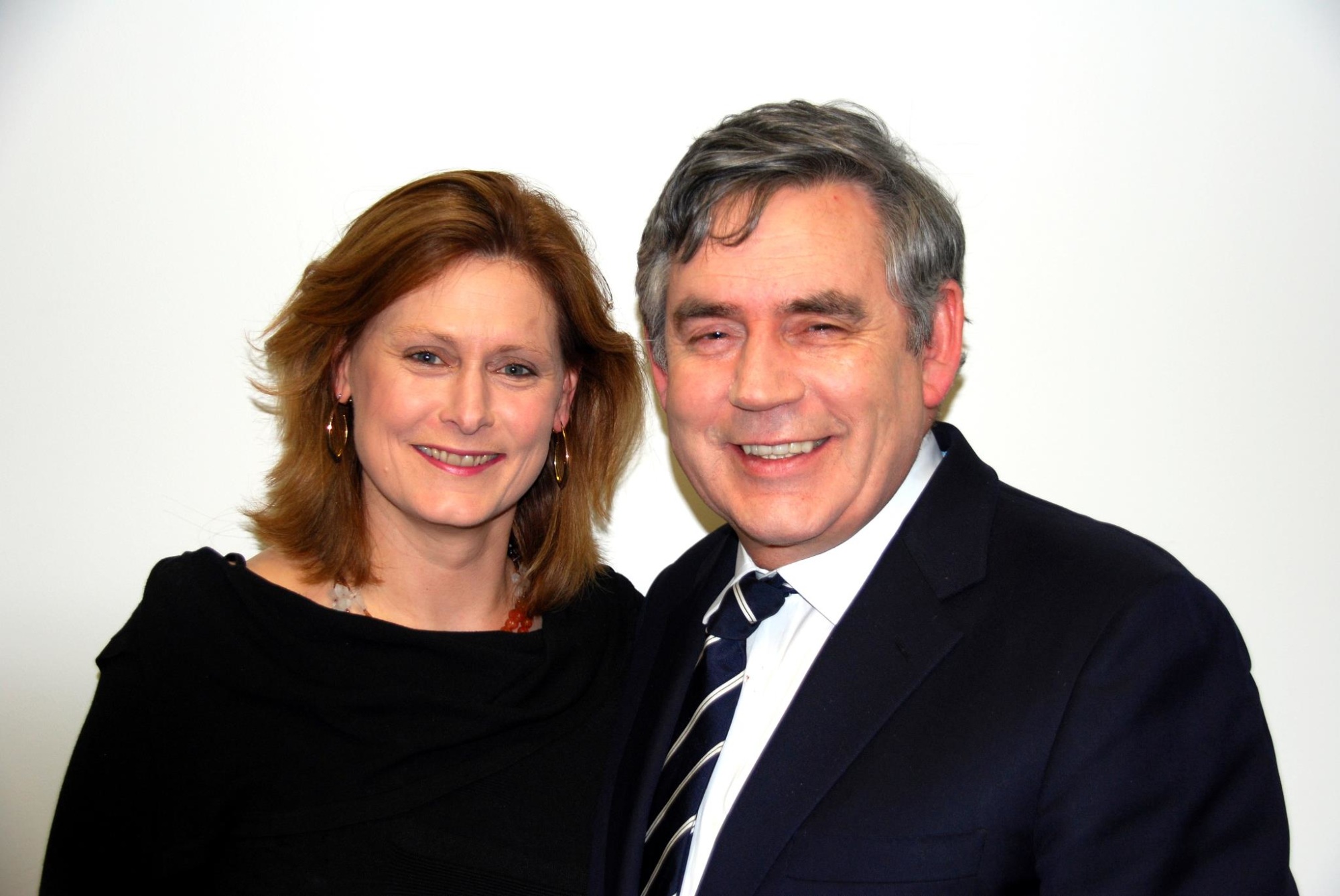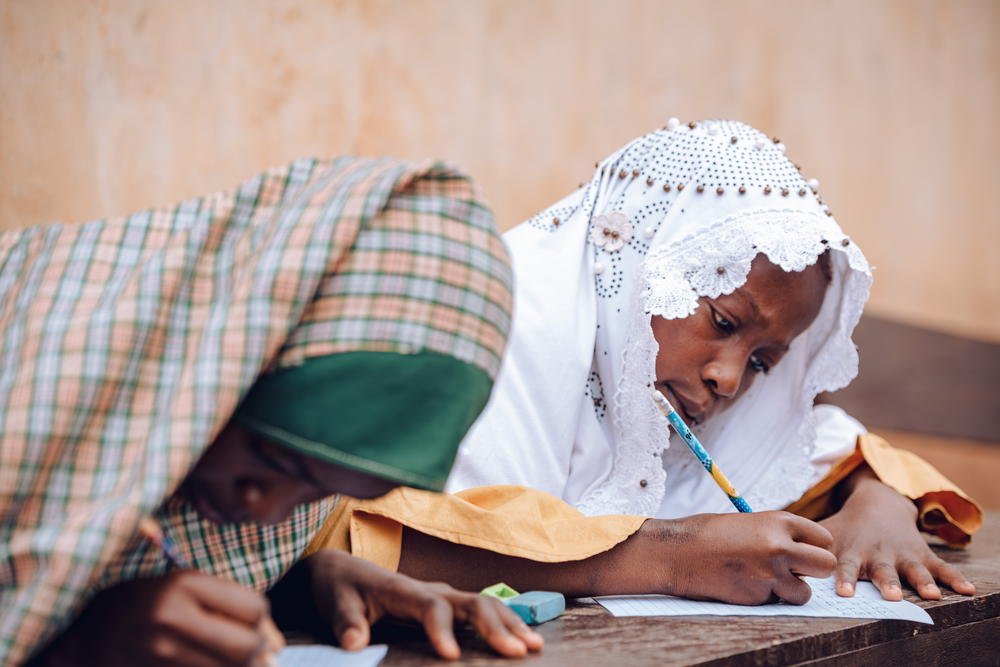
“I have a passion for growth – one of the things that is critical for the growth of a nation is education”
Barriers to education, Right to education, Sarah Brown
In the latest episode of her Better Angels podcast, Theirworld President Sarah Brown talks about creating change to former Tanzania president Jakaya Kikwete, American journalist Nicholas Kristof, British comedian Nish Kumar and Dutch anti-trafficking campaigner Toos Heemskerk-Schep.
How do you create change? Do you lead, watch, take part or just shout loudly?
All of these activities have their place in campaigning for change and shifting the status quo or addressing a wrong.
Theirworld President Sarah Brown brings the second series of her Better Angels podcast to a close by talking to the former president of Tanzania, Jakaya Kikwete; New York Times columnist and author Nicholas Kristof; British comedian Nish Kumar; and Toos Heemskerk-Schep, an anti-trafficking activist from the Netherlands.
Sarah says everyone can be an activist. She adds: “People from all walks of life, all countries, all professions can get involved.”
Jakaya Kikwete was Tanzania’s president from 2005 to 2015 and was also president of the African Union in 2008-09. He had to oversee massive change in the East African country – and is particularly proud of the progress on education.
He tells Sarah: “I have a passion for growth. One of the things that is critical for the growth of a nation is education.”
When he became leader, only 6% of children were going on from primary to secondary school.
“So we had to catch up,” he says. “If you want to create a middle class you have got to go beyond primary school.
“Well, it worked. It was amazing. The student population increased in secondary school from 524,000 to 1.9 million.”
Kikwete says Tanzania is now “doing justice to our children and our young people.”
Nicholas Kristof has written a lot about human and women’s rights – and won two Pulitzer Prizes for his journalism.
Sarah asks him about the balance between being an independent observer and wanting to bring about change.
“I write about issues that bother me and where I think it can make a difference,” he says.
“I think that it’s about being transparent and disclosing. I also think that it is about recognising where your comparative advantage lies.
“I do think that where I add value is in writing about problems, not in helping individuals here and there.
“But I also think that if I come across a child who is dying of malaria I’m not going to sit back and pull out my pad and camera and chronicle the child’s death when I can take that child to the local hospital.”
How does laughter help when you’re discussing the need for change? That’s the question Sarah puts to Nish Kumar when she catches up with him in Edinburgh during his latest comedy tour.
He confesses that he is wrestling with how to give his audience what they want to hear about today’s issues but also to more personally as an activist – particularly on the issue of the United Kingdom leaving the European Union.
“I’ll continue writing and performing comedy but the next step for me is to actually start putting my money where my mouth is and start turning up to demonstrations,” he says.
“We are at a tipping point politically – it’s starting to come to a point where we could end up on the wrong side of history if we don’t pull our finger out.”
Sarah has some very interesting tips for Nish on how he can focus his activism. Listen to the full podcast to find out what she suggests.
Toos Heemskerk-Schep is country director of Not For Sale. Sarah speaks to her in a noisy Amsterdam cafe where the charity provides culinary training for victims of trafficking.
She asks Toos how the wider community can become engaged in projects like this.
“So often we think that those type of activities needs to be done by social workers,” says Toos.
“But we are so grateful in the Netherlands now that we have so many businesses wanting to have a social corporate responsibility. They give time to us.
“We have law firms who give their time in order to help us with all kinds of different papers and documents. We have bookkeepers who give us time in helping us with the bookkeeping. We have companies who open up their doors for internships for the women – and this is huge.
“We can train, we can educate a woman – but they need to go out there and they need to get back that confidence in normal businesses. That’s really what it’s all about. We should really join all those forces together.”
Don’t miss an episode – subscribe now
To subscribe via iTunes from this page, hit the iTunes icon above.
If you are on a desktop, you’ll need to select ‘View in iTunes’ and once the iTunes programme is open, you’ll be able to switch on a subscription.
Alternatively, if you have a podcast player that subscribes via RSS, you can click the RSS icon on any episode or use this link to get a full feed of all the episodes.
To subscribe via iTunes from this page, hit the iTunes icon above.
If you are on a desktop, you’ll need to select ‘View in iTunes’ and once the iTunes programme is open, you’ll be able to switch on a subscription.
Alternatively, if you have a podcast player that subscribes via RSS, you can click the RSS icon on any episode or use this link to get a full feed of all the episodes.
More news

